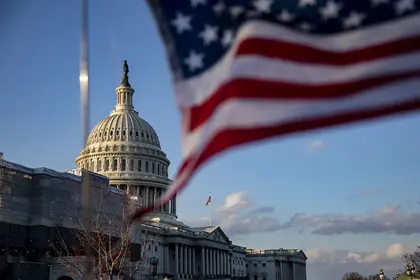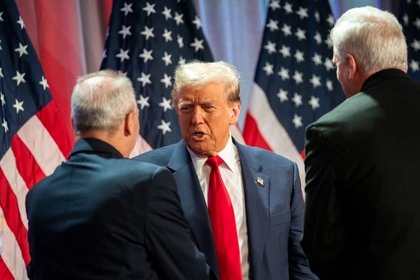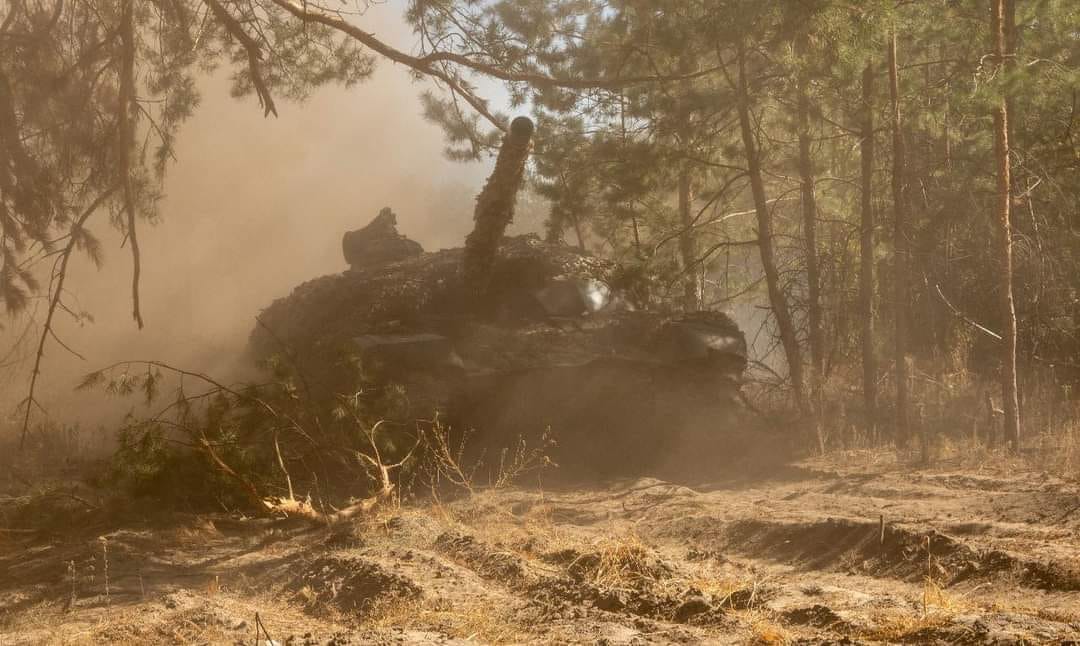It may seem hyperbole to suggest that the fate of Ukraine will determine the fate of the US, at least in terms of its position as a world power. It seems inconceivable to those with their hands on the levers of decision-making in Congress that Ukraine – a financially, militarily and geographically smaller nation than the US – might quietly hold sway over the future of the US.
But that is the situation we are in. The reason for this is not some secret form of potency that Ukraine has over the US. It lies in the domain of soft power.
JOIN US ON TELEGRAM
Follow our coverage of the war on the @Kyivpost_official.
It is the perennial failure of dominant nations, and often their denouement, to underestimate the importance of their unseen influence in the authority they command. The US projects an image of a nation with a commitment to the defense of democratic nations. It’s not unusual to hear it described as the leader of the free world.
That image is the product of decades of work, not least forged in the fire of the post-World War II order which saw the US claim the baton of western might from the British and stride ahead in leading the assembly of new international institutions, from the UN to NATO.
This transition was not merely the product of material and military strength, but the moral courage of a nation that had provided the means to defeat the worst horrors of tyranny and had the confidence to declare its intention to shape the world anew and for the better.

Zelensky Says War in Ukraine Will End ‘Sooner’ with Trump in Office
That leadership has been remarkably successful. It has ring-fenced a domain within which the freedoms of accountable government have flourished and individuals themselves have been able to enjoy the benefits of peace and dignity.
In the UK, I belong to a generation that neither had to go to war nor do compulsory military service – a possibility denied to my father and especially to my grandfather who was discharged after being gassed in the trenches of France. That pacific existence has in no small part rested on US strength across the West.
As with an individual, reputation takes momentous efforts to build, but it can be extinguished in an instant.
A defining moment for all the wrong reasons
It cannot be over-exaggerated what the consequences of the US’s decision to flee the Ukrainian battlefield in the moment of crisis will be, but it is surely to be catastrophic. On the purely reputational level, this failure to step up will be remembered as a defining moment of regress. For those who would like to believe that the US is a power in decline, morally and in terms of its capacity for captaincy, this will confirm their view.
It is likely that the hesitation of the US will embolden autocracies around the world to make moves, leading to new conflicts and confrontations from Europe to Asia and the Middle East. These challenges will not be countered by the fact of US military might and its scope, they will be caused by a mere perception of US debility.
In consequence, military alliances, safeguards, and processes will mutate and mold themselves to a world in which it is assumed that the US cannot be relied upon as a partner and friend. In the best case, it means that the US cannot expect allies to show a great deal of enthusiasm for reciprocal aid in times of need. In the worst case, nations will begin to pursue their own nuclear weapons programs as the umbrella of US friendship pulls apart at the seams. Far more worrying are the unknowable and unpredictable alliances and responses that will make themselves felt in a world lacking US leadership.
More specifically, the US would forfeit the near unanimous type of camaraderie that the world displayed after 9/11. Ukraine itself did not hesitate to stand by the US in that moment of calamity.
Threat to freedom itself
Perhaps the greatest danger is to the wider environment for liberty. Free societies rest on foundations of persuasive ideas rooted in concepts of justice, the dignity of the individual, the accountability of state power, not on blind force.
For these societies to prevail requires, in a real sense, much stronger leadership than dictatorships. As leaders cannot rely on militias and the power of terror, they must lead with the conviction of the ideas of freedom. This demands a much richer and principled form of personality, which is why a Pericles is more inspiring than a Spartan autocrat; and a Churchill more than a Hitler. It is not only in their deeds that we make our assessment, but in the force of their rectitude and what they stood for that defines the soft power of free states.
Today, Kaja Kallas is one leader who has consistently, from the beginning of this war, elaborated on the need to defend Ukraine and the consequences of inaction. The US has often been frustratingly lacking in statements of political and global principle or strategic clarity. This perceived lack of resolve encourages the corrosive elements to prevail. Under an Eisenhower or a Reagan, where would a Mike Johnson be? I suspect nowhere to be seen. The candor and force of character of these individuals would simply have evaporated Congressional indecision in its heated glare.
Beyond the US, the decisions of allies are enfeebled. Germany applauded in 1987 when Reagan stood at the Brandenburg Gate next to that infamous wall and demanded that Gorbachev “tear down this wall!”
It is noteworthy that many of Reagan’s advisors suggested he remove his invocation in case it inflamed or escalated tensions with the Soviet Union. He declined the suggestion. The speech is now a memorable flag on the road to Eastern European freedom. Today, Germany vacillates over Ukraine partly because the US is reticent to lead from the front.
It is galling that Republicans, the heirs of the great traditions of American democracy, individualism and economic liberty, are now the ones who assail the global implications of these values. Watching them from outside the US debating Ukraine is like observing a group of schoolchildren standing next to a burning ice cream truck arguing about what flavor of popsicle to buy. The spectacle would be depressing if it wasn’t for the fact that it strays into incompetence and cowardice when the fate of a nation and her people is at stake.
The US isn’t obligated to provide this leadership. There is no international agreement that insists that the US must be the pinnacle of the free world. The point is, rather. whether the US wants to retain this position of responsibility or whether the baton of freedom must be passed on once more.
The problem right now is that there is no strong hand to seize the baton, although Europe seems finally, after two years of war, to be waking to the menace. The reality is that the free world needs the US, and, if the US wishes to remain a presence to be taken seriously, it needs to stand with the free world.
US lawmakers and politicians should not underestimate the portent and significance of Ukraine. In her lands, the future of the US as a world power must surely be decided. In its turn, the destiny of the soft power of the US will determine whether the idea of a free world survives intact at all, or whether we must return to a world of unpredictable chaos from which new arrangements of autocracy and discord emerge.
Charles Cockell is Professor of Astrobiology at the University of Edinburgh.
The views expressed are the author’s and not necessarily of Kyiv Post.
You can also highlight the text and press Ctrl + Enter






